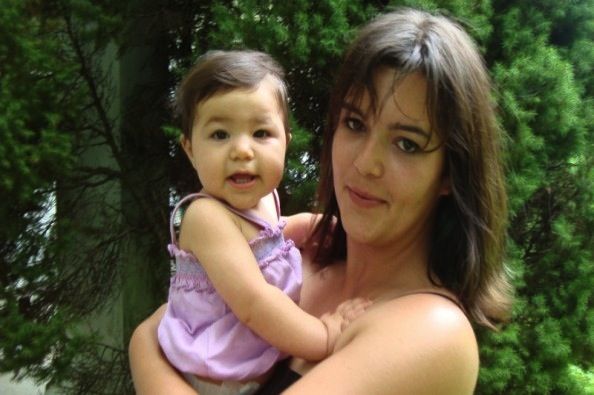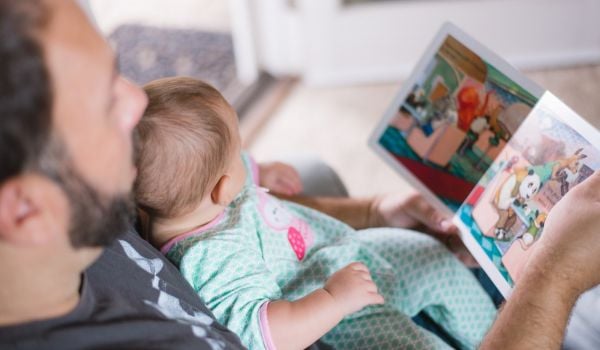Linda Tirado was just another struggling, lower-middle class American working two jobs and balancing school until she wrote a blog post about how poverty directly impacts her decision making. The 31-year-old Utah resident’s missive “Why I Make Terrible Decisions, or, poverty thoughts” — which she wrote under her commenter name Killer Martinis — lent some anecdotal evidence to scientific research published in August that found poverty influenced decision making and cognitive functioning. Tirado’s post struck a nerve and she has raised over $60,000 in the last week via GoFundMe.
The mother of two, who is keeping both of her jobs despite the goodwill towards her book project, hasn’t been without her critics in her short time in the limelight, receiving hate mail and menacing phone calls. We called up Tirado — who squeezed 10 minutes for us between her two jobs and tending to her family — to chat about the craziness that ensued, class anxiety and what’s next for her.
Next City: So have things settled down since you first wrote the post? Are you still getting hate mail?
Linda Tirado: I’m still getting like 500 emails an hour. I have a backlog of something like 20,000 emails to get through. It’s been all over the place. People saying ‘thank you I saw myself in this’. It’s people saying ‘I hope that you die’. People asking me to help with their documentary.
NC: You fell into some cash after you published your essay. Does your brain feel less clouded and more focused with this newfound stability?
Tirado: Here’s the deal. I am exhausted from the last week. But my god I’m so relaxed. If I got pulled over because I don’t have my registration up to date, do you think I’m going to go to jail for that shit now? Hell no! I’m going to be able to pay the fine and take care of it.
NC: It’s completely changed the way you wake up in the morning. You didn’t hit the lotto, but you don’t have to worry as much about bills and groceries as you used to.
Tirado: I’m not afraid anymore. Now I’m afraid that maybe people will say mean things about me on the Internet and it’s going to bug my family. That is literally all that I’m worried about now.
NC: So are there any emotional consequences? Do you feel any class hangups or anxiety about your new status?
Tirado: I think that I will feel the difference when I have decided that it might actually be real. This is all nonsense. This is ridiculous. It’s so arbitrary. Like, I’m angry about it a little bit. I’m embarrassed by it quite a bit. For me, right now I’m a little angry that people are looking at me saying, “You got this magic.” And they’re angry at me about it, instead of looking at me and being angry that it takes magic for families to find stability.
NC: How did the government’s safety net programs help? Was there any sort of comfort knowing that there was some aid, rather than none at all?
Tirado: I have, at various points when I’ve been at the worst, been on different government benefit programs. No I don’t think they did [help], not emotionally. It wasn’t soothing in any way. It was comforting to know that if I was ever going to be completely screwed, I’m good at navigating bureaucracy and I would be able to access those things. But it was never, like, a warm hug.
NC: You’ve lived it. What do you think the government could do to better help struggling working class families?
Tirado: I think that it’s a question of policy. These small-scale [governmental] programs, that’s fantastic and great and handy. But I live in Utah, so we are probably going to expand Medicaid the back door way because we’re Mormons and we can’t not take care of the poor because we have a religious mandate for that and it’s in the culture. But we’re also Republicans, so we can’t take care of the poor because dammit they should have bought better bootstraps.
So I am in a state where we may expand Medicaid we may not. The next state over, they’ve already done it. You have all of these different patchwork things that these governments are doing and I think what we really need to do is on the federal policy level.
NC: You’re keeping your jobs while you write the book. But what’s next on the docket for you?
Tirado: Well, I’m going to start a bit of an experiment and insert myself into the middle class in a very strict way. One of my good friends from high school is a doctor in my hometown now. And what we’re going to do is take a full battery [of tests]. I’m going to go in for blood work and x-rays and whatever other tests. We’re going to see where I’m at now. I’m going to spend a month getting good sleep and eating the correct foods and not quite so much stress. Then I’ll go back and see OK what does this do to my cholesterol and heart rate? I’m going to quit smoking. We’re going to see how this stuff affects me. We’ll be able to see, maybe I’ll get stopped less frequently by cops. Will I get questioned by security less? It should be super interesting.
The Equity Factor is made possible with the support of the Surdna Foundation.

Bill Bradley is a writer and reporter living in Brooklyn. His work has appeared in Deadspin, GQ, and Vanity Fair, among others.

















